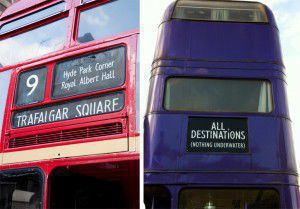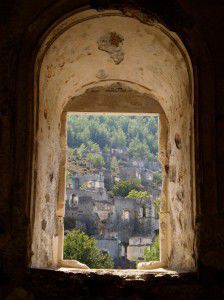15 cultural faux pas to avoid when travelling
Before you go on holiday, or on a business trip abroad, it’s a great idea to learn a little of the local language. But getting along with people is about much more than just the words you say. There are other rules too, so here are our top tips to avoid misunderstandings abroad.
1. Be very careful when exchanging business cards in Japan: they aren’t just cards, but representations of the giver and should be handled with some ceremony. NEVER write on a business card or put it in your back pocket, as this is considered disrespectful.
2. Don’t talk about work over dinner in New Zealand, even if you’re having a meal with your colleagues. It’s fine to talk business over lunch, though.
3. In Muslim countries it’s considered an insult if you show the soles of your feet, so watch how you sit.
4. If you’re in Hungary and you’ve been told your meeting is at ‘fél négy’ (‘half four’), don’t turn up at 4:30 – ‘fél négy’ actually means half an hour TO four, so you’ll need to be there at half past three.
5. On the other hand, if you’ve been invited to a gathering in France, always aim to arrive 15-30 minutes late, to allow the host time to get ready.
6. Making a circle with your forefinger and thumb as another way of saying ‘OK’ is seen as an extremely offensive gesture in Brazil. As is the ‘thumbs up’ gesture in Iran, and showing your palm in Greece. It might be better to just avoid hand gestures altogether…
7. In Germany, not making eye contact when you clink glasses is considered very rude. It also, apparently, means you’ll have seven years’ bad luck in the bedroom. So even if you’re not worried about being thought bad-mannered, it might be worth making the effort. Just in case.
8. In Bulgaria, nodding your head means no, and shaking your head means yes, which is the opposite of what most of us are used to. This is worth remembering or you could get yourself into all kinds of trouble.
9. It’s been illegal to bring chewing gum into Singapore since 2004, because of the damage being caused to public buildings and facilities by people leaving their gum behind. You can also be fined for not flushing a public toilet.
10. In Russia, if you’re giving someone flowers, make sure you give them an odd number. Even numbers are for funerals.
11. It’s important to show respect to your elders in Asia, so don’t call them by their name; instead use ‘Auntie’ or ‘Uncle’, even if you don’t know them.
12. When eating a meal in Spain, you’ll be expected to clear your plate, and leaving some food is seen as rude. In Russia, on the other hand, you’re expected to leave a little as a sign that your host has provided enough to fill you up. And in China, a polite belch when you finish eating is considered a compliment to the chef, although it’s frowned upon in many other countries.
13. Never say anything disrespectful about the king in Thailand, as this could land you in prison for several years.
14. Make sure you’re appropriately dressed before going to church in Italy. This means your shoulders, knees and midriff should all be covered, or you won’t be allowed in.
15. In Malawi, it’s common for people of the same sex to hold hands; this is a sign of close friendship, so don’t worry if someone tries to take your hand. It’s a compliment. Men and women holding hands is rare, though, and may be frowned upon.
As always, if anyone has any others, we’d love to hear from you!
Bye – or Auf Wiedersehen!
Our intern, Lorena, leaves us today to go home to Germany, and she’s been thinking back over her experiences in London and how she’s made the most of her time here to practise her English.
The time is running too fast. But I can’t say goodbye, because I think it means something sad is happening. But I am not dead, I am alive and I can come back to London. It takes me only one and a half hours on the airplane. So, I want to say ‘Auf Wiedersehen’. This means: see you again.
I want to say thank you to EuroTalk. This brilliant team work very well together and gave me a good feeling to work here. They showed me a good insight into the working life.
Now, I have been for six months in London. I enjoyed the time in this very big and exciting city, and I’ll go back to Germany with a smile. For everyone, who is thinking about going to another country: Do it! Don’t think too much about it. Nobody can take this experience from you. And you will see, you will leave the country with new impressions and you will be happy.
I came to London to improve my English skills. I did it, because I started sometimes to dream in English. If you are doing this, than it is a good sign. At first, if I listen to people in a shop, it takes some time to understand, what they are talking about. But you listen every day, than you understand more and more. Also I started to read a book: Eat Pray Love. I watched the movie in Germany, so I knew a little bit what the story is about. By reading the book, I expanded my vocabulary. Three weeks ago, I went to a cinema to watch the Disney movie Frozen. After I left the cinema, I was astonished how much I understood. And I really enjoyed this movie.
Moreover, if I am in the train, I read the newspaper. As time has gone on, I have understood more articles. It gave me a good feeling, because then I know what’s going on in London (news, politics…) And what I did also always, when I listen to music, I try to translate, what the singer wants to say. With fast songs, I found it sometimes hard to understand. But now I understand more. The important thing is to speak with the English people. Around the corner, there is a lovely pub. I love this pub. And I went there during the week to talk with the publican. It was always funny to talk with him and so I improved my English too.
I worked in a charity shop too, and before I went there each day, I drank a hot chocolate in a café. And I tell you, every time I sat there, I came to talk with people. I don’t know why. Someone told me I have a friendly face. Anyway, in the end I talk with the people and they asked me why I was in London. Talking is the best way to learn a language.
Auf Wiedersehen!
Lorena
10 of the world’s most amazing places
One of our top tips for learning a language is to take a holiday – it not only gives you a chance to practise your new language with the locals but you also get to visit somewhere nice. And why not take the opportunity to visit some of the world’s most amazing (if sometimes slightly bizarre) places while you’re at it?
1. San Alfonso del Mar
Like the world’s largest swimming pool, for instance, which is at San Alfonso del Mar in Chile. If you’re thinking of swimming lengths, you might want to stock up on energy drinks before diving in to this one. It’s more than 1,013 metres long, so paddlers should beware! It also has a 35-metre deep end – not for the unwary swimmer. The Guinness Book of Records named this pool as the biggest in the world, needing 66 million gallons of water to fill it up.
2. Mt HuaShan
Or maybe you’d like to visit a traditional Chinese tea house. What about this one, at the top of Mt. HuaShan? It’s 2,160 metres high and the path to get there is nothing short of terrifying. It’s thought that there may be as many as 100 fatal falls a year, and yet the trail is popular with tourists, keen to visit the teahouse, on the southern summit of the mountain, which used to be a Taoist temple, or the chess pavilion on the east peak.
3. Stewart Island
If bird-watching is your thing, you could visit Stewart Island in New Zealand. It’s one of the most remote destinations in the world, with only one town, Halfmoon Bay (also known as Oban) and an estimated population of just 450 people. The island is the only place to see the Kiwi bird in its natural habitat and is also home to five species of penguin.
4. Pink Lake
Next door in Australia, Pink Lake, just west of Esperance, is worth a visit. As its name would suggest, in certain weather conditions the water in the lake is pink, thanks to a particular kind of algae in the water. And this isn’t the only pink lake in the area. Lake Hillier, on Middle Island, is another example and an even brighter colour.
5. Joffre Lakes
However, if you prefer your lakes blue, the Canadian park of Joffre Lakes in British Columbia comes highly recommended. The lakes are a more traditional, but stunningly beautiful, turquoise blue and surrounded by peaks and glaciers. A trip to Joffre Lakes isn’t complete without an overnight stay, where you can camp under the stars and listen to the ice calving from the glacier.
6. Kizhi
The Russian island of Kizhi is found almost exactly at the centre of Lake Onega and boasts a spectacular wooden church, the Church of the Transfiguration, which was built in the 18th century without a single nail. Legend says that the lead builder used just one axe for the whole building, and then threw it in the lake when the church was completed, saying, ‘There was not and will not be another one to match it.’
7. Kayaköy
Just a few miles from the popular resort of Fethiye in southwestern Turkey, on the side of a mountain, is the village of Kayaköy. Greek-speaking Christians lived there until the 1920s but the village was abandoned follow a population exchange agreement between Turkey and Greece in 1923. Now a museum and historical monument, Kayaköy is a beautiful but rather eerie ghost town.
8. Capuchin monastery
Speaking of eerie, the Capuchin monastery in Sicily is home to 8,000 mummified corpses in the monastery catacombs. The bodies are all dressed in their best clothes and arranged in different rooms according to the type of person. The oldest in the collection dates from 1599, while the most recent addition is the body of Rosalia Lomabardo, who was embalmed in 1920 and is known as ‘Sleeping Beauty’.
9. ICEHOTEL
If you’re looking for somewhere a bit different to stay, you could try the ICEHOTEL in Jukkasjärvi, Sweden. Made with ice from the Torne River, the hotel offers ice and snow rooms, and runs a survival course every night for new guests on what to wear and how to cope when sleeping in temperatures below zero. But don’t worry – warm rooms are also available if you’re not a fan of the cold.
10. Malapascua
One extreme to the other – the island of Malapascua in the Phillippines boasts beautiful beaches and is most popular with divers, as it’s the only place in the world to see the pelagic thresher shark. There’s no transport on the island because it’s small enough to walk everywhere, and the only way to arrive on the island is by banca (a local boat ferry).
We hope that’s given you a few ideas for your next holiday. Don’t forget to learn a few words in the local language before you leave! And if we missed your favourite place, let us know in the comments…
8 bizarre superstitions from around the world
This month, we’ve been having a look at interesting superstitions from different countries. There are literally thousands of examples – here are just a few. We suggest they should be taken with a pinch of salt…
If you’re in Malta, don’t rely on the church clock to tell you the right time. Churches are sometimes fitted with two clocks that tell different times to confuse the Devil about the time of the service.
Approach toilets with caution in Morocco – there might be a genie living in the u-bend… They don’t give wishes and they certainly don’t like to be disturbed. If you need to go, just say the words ‘Rukhsa, ya Mubariqin’ (With your permission, O Blessed Ones). Also beware of going to the toilet at night, where you might run into a beast called ‘Maezt Dar L’Oudou’, the ‘Goat of the Lavatories’.
If you’re visiting Britain, you’ll probably find you need an umbrella with depressing regularity. But whatever you do, don’t open it till you get outdoors; it’s very bad luck to open your umbrella inside.
Elves are alive and well in Iceland. In a 2006 survey only 35% of Icelanders said that they thought the existence of elves was either impossible or very unlikely and local elves still take an active role in shaping modern Iceland: roads and building projects sometimes have to be changed to avoid destroying known elf homes.
In Japan, if you walk by a graveyard or a hearse passes you, you must tuck your thumbs inside your fists. This is because the Japanese word for thumb (‘oya yubi’) literally translates as ‘parent-finger’ and so by hiding them you protect your parents from death.
Ready to go? Have a seat. In Russia, if you’re going on a journey you have to sit down for a minute just before leaving the house, to reflect on the coming trip and make sure you’ve got everything you need. It’s also bad luck to say goodbyes over the threshold, so you should always say your farewells before you leave.
If you find yourself in Spain on New Year’s Eve, don’t be surprised if, when the clock strikes midnight, you notice everyone around you eating grapes. This has been a tradition since the early 20th century; eating one grape for each bell strike is believed to bring twelve months of good luck.
And finally, when in China, never leave rice on your plate at the end of a meal – for each grain left at the end of a meal, your future husband or wife will have that many pockmarks on their face.
We’d love to hear any more examples, so please do share them in the comments below. And good luck out there…
London – a magic city
Now I have lived for more than two months in London. And one thing that struck me, is that I see little objects from the Harry Potter movies. I think it makes a difference if you live in England and see the movie, or you live in Germany, like me.
In Germany we don’t have double-decker buses and in one scene, there is a double-decker bus that changes its width. The first time I saw a double-decker bus driving in the city, I remembered this scene. The bus driver in Harry Potter was crazy (drove against the traffic!) and drove very fast through the streets. I know it’s only a movie, but… So I was thinking: “Should I get in? I need this bus, because it will take me to my language school. It is only a bus!” I had no choice but to take a deep breath and get on with it. The bus drove off and thank god, nothing special happened.

I see the architecture in London too. Some areas are similar to the area where Harry Potter lived with his adoptive parents, the Dursleys. I sometimes have the feeling that I have dipped into a different world when I walk around.
Also a typical accessory is the umbrella! As an Englander you need it, because you don’t know when it will start to rain. It is every day a new surprise. And Hagrid, one of the characters, uses it to get in the magic world where the magicians live. He taps the bricks and suddenly the wall opens like a door. Most people always have a umbrella here. Then there is the questions from the perspective of a German, are the people with an umbrella maybe magician? Is the story of Harry Potter true?
Sometimes when I go home, I see lots of people running, running, running! I think, why they always so hectic? They can take the next train. Or? But now I have the answer why! Because they don’t take the train. That is too boring for people here and that do only ‘normal’ people. Here in London you are running, because they do it like Harry Potter and all the other magicians! I think in London everywhere are distributed lots of similar platforms like the platform 9 ¾ at the Kings Cross Station. And instead of catching the Hogwarts Express, they catch the Home Express! Yes, I am sure that is the answer!
Also, when I saw the first time all the children with the beautiful school uniform (in Germany we don’t have uniform) that reminds me of the movie. Everyone here has a different logo from the school they go to. It is like the four houses in Harry Potter: Gryffindor, Hufflepuff, Ravenclaw and Slytherin. And after the school they get out their Nimbus 2000 and start searching for the Golden Snitch? Yes, here in London nothing can surprise me any more! They all look like little magicians! I thought, Lorena, you are in a magic city.
Lorena











